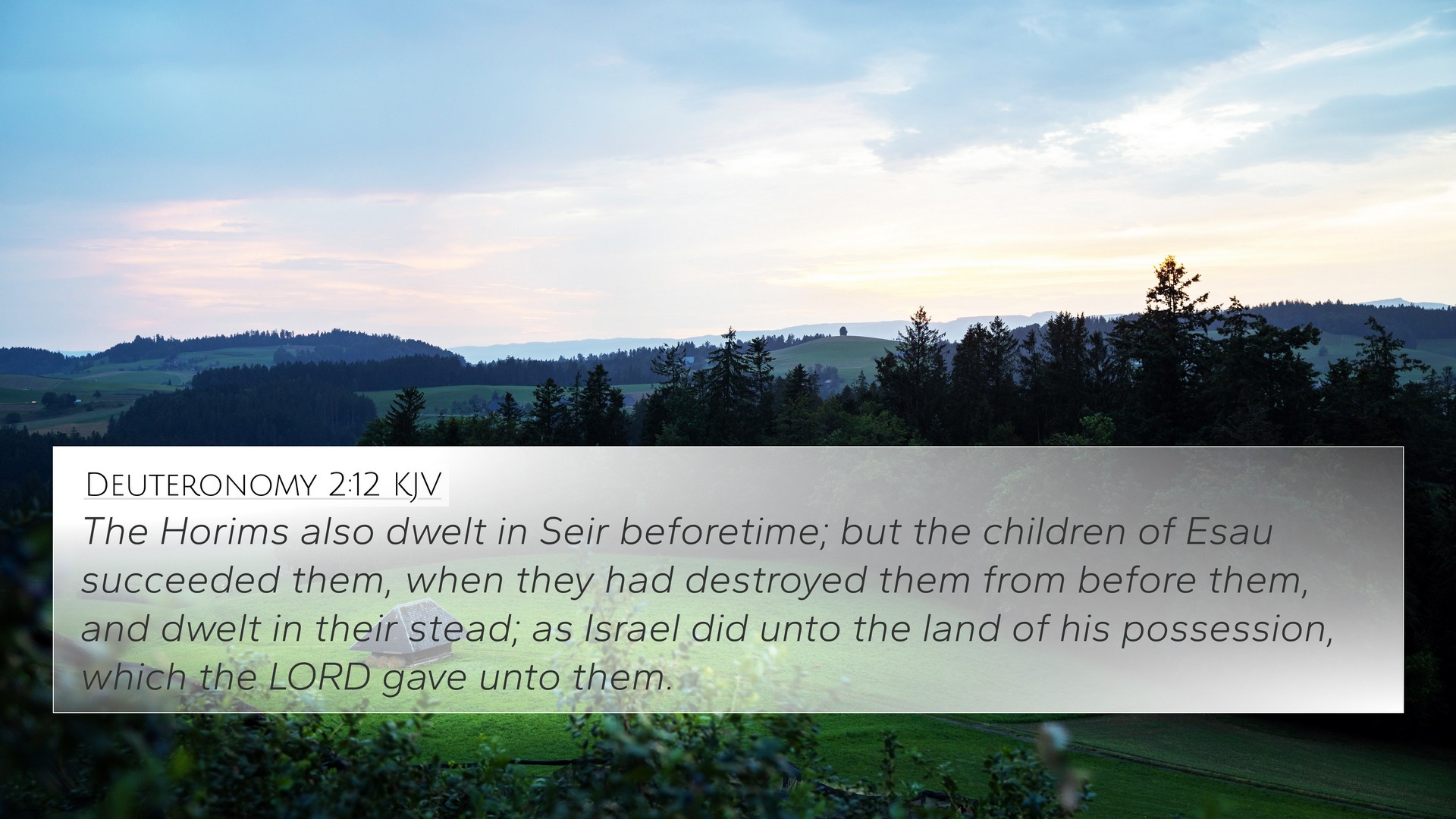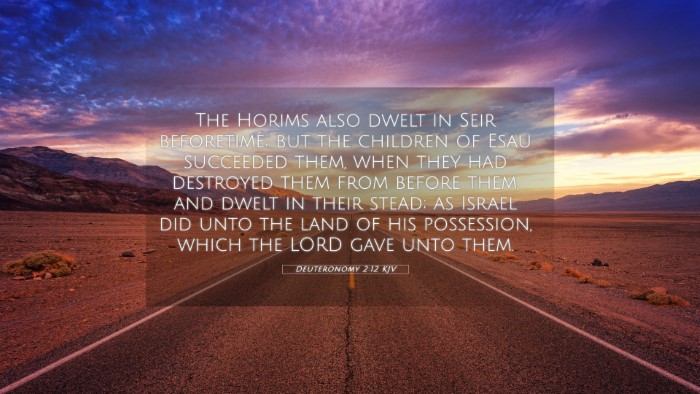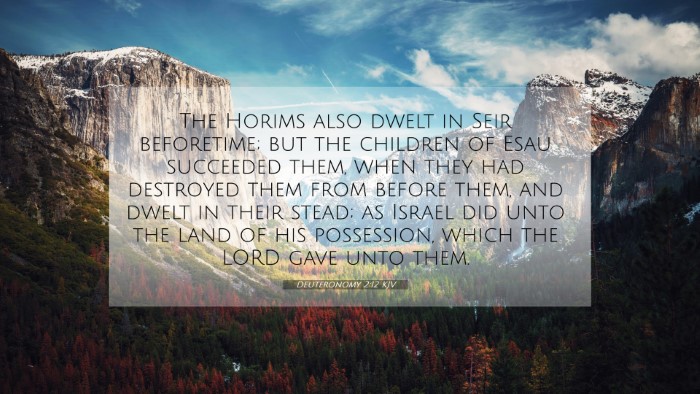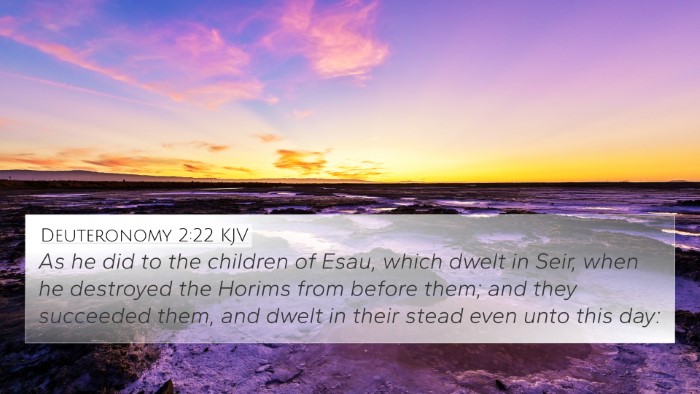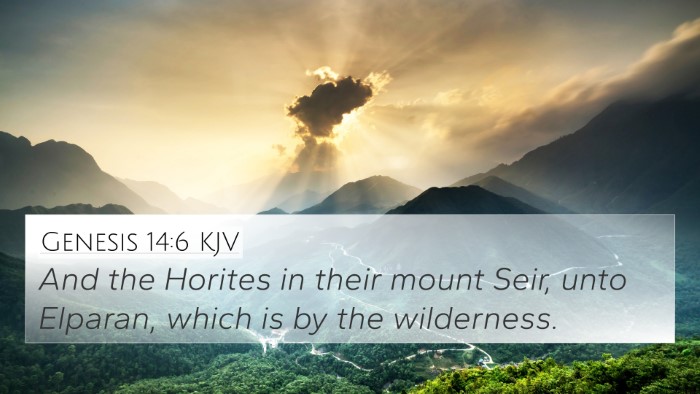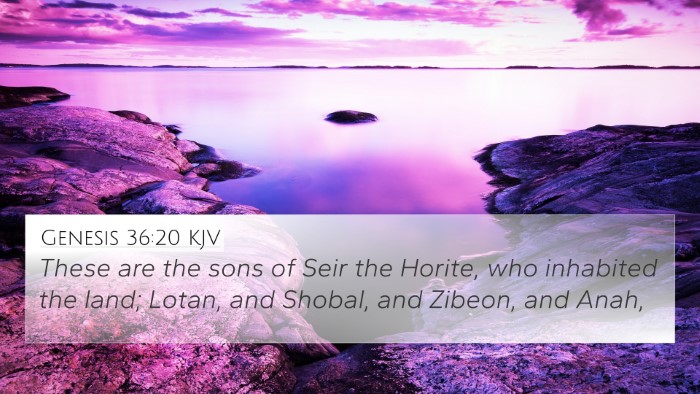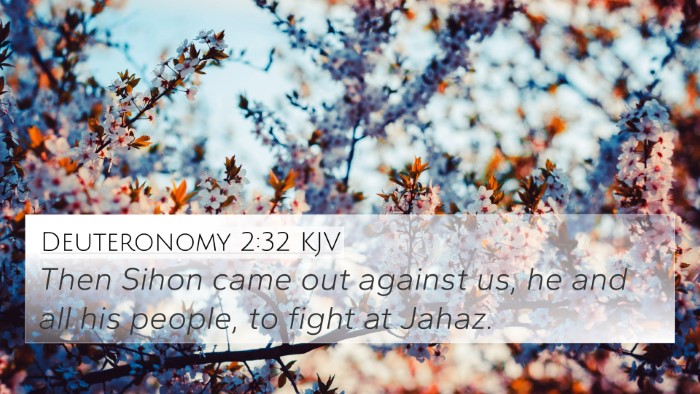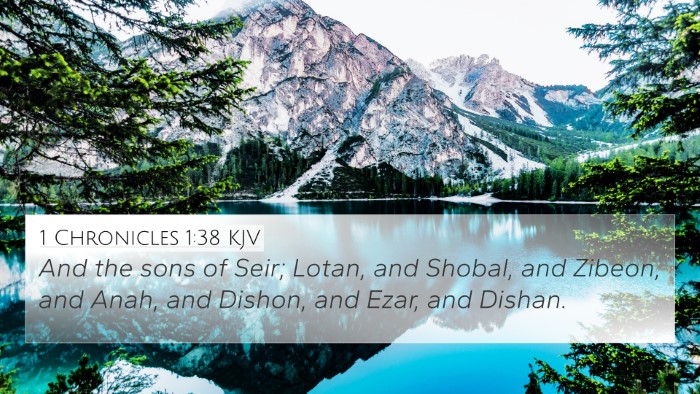Understanding Deuteronomy 2:12
Verse Context: Deuteronomy 2:12 states, "The Horites also lived in Seir before time; but the children of Esau succeeded them, when they had destroyed them from before them, and dwelled in their stead; as Israel did unto the land of his possession, which the Lord gave unto them."
Summary of Meaning: This verse highlights the transition of land possession among different peoples, specifically mentioning the Horites and the children of Esau. This serves as a reminder of the usage and stewardship of land as per divine ordination.
Commentary Insights
-
Matthew Henry's Commentary: Matthew Henry emphasizes the significance of this historical recounting, pointing out that it serves to remind Israel of God's providence and faithfulness. The dispossession of the Horites by the Edomites underscores the divine judgment on ungodliness while affirming that land can only be possessed by those who align with God's purposes.
-
Albert Barnes' Commentary: Albert Barnes notes that the verse illustrates the ongoing fulfillment of God's promises. The success of the children of Esau in occupying the land previously held by the Horites reflects God's control over nations and the eventual establishment of His covenant people in their designated inheritance.
-
Adam Clarke's Commentary: Adam Clarke elaborates on the historical context, indicating that the Horites were a group of cave-dwellers defeated by Esau's descendants. Clarke points out that this transition of power serves as an illustration of divine sovereignty and highlights the theme of dispossession and restoration that permeates the Bible.
Bible Verse Cross-References
This verse can be linked to several other Bible verses that enhance understanding of its meaning and context. Here are key cross-references:
- Genesis 36:20-21: Discusses the origins of the Horites and their territory, shedding light on their historical significance.
- Numbers 20:14-21: Details the relationship between Israel and Edom, reflecting on the land's importance as a divine inheritance.
- Deuteronomy 2:5: Further explains that God commanded Israel not to contend with Edom, showcasing the divine mandate in geopolitical matters.
- Isaiah 63:1-3: Reflects on God's judgment against Edom, emphasizing a broader narrative of divine oversight over nations.
- Malachi 1:3: Offers insight into God's perpetual relationship with Edom, which resonates with themes of divine love and disfavor across generations.
- Joshua 24:4: References the inheritance of the land given to Israel, further intertwining historical claims among descendants.
- Romans 8:17: Connects the themes of inheritance and suffering, paralleling how God providentially guides His people in different eras.
Thematic Bible Verse Connections
Understanding Deuteronomy 2:12 can be further enhanced by examining its thematic connections within Scripture:
- Divine Sovereignty: The transition from Horites to Esau’s descendants exemplifies God's sovereignty over nations and their fates.
- God’s Faithfulness: The assurance that God fulfills His promises of land and heritage is central to both Israel's narrative and God’s ongoing covenant with His people.
- Covenant and Inheritance: As noted in Genesis, the peace and strife of land ownership underscore the broader covenantal themes present in the Old and New Testaments.
- Divine Judgment: The dispossession of the Horites serves as a reminder of divine judgment not only pertinent to them but relevant to all who oppose God’s plans.
- Historical Contextualization: Understanding the ancestry and struggles of peoples in the Bible provides depth in grasping the sociopolitical fabric of the age.
Cross-Referencing Biblical Texts
The practice of cross-referencing Biblical texts provides a robust framework for understanding and interpreting verses like Deuteronomy 2:12:
- Explore Tools for Bible Cross-Referencing: Utilizing a Bible concordance can unveil relationships between verses, enriching study sessions.
- Employ Bible Cross-Reference Guides: These guides simplify the process of identifying connections between and within Biblical narratives.
- How to Use Bible Cross-References: Engage with cross-referencing Bible study methods for deeper insight and thematic analysis.
Bible Study Principles
Considerations for those engaging with the scriptures include:
- Identifying Connections Between Old and New Testament: Look for thematic parallels that bridge both testaments for a broader scriptural understanding.
- Detailed Cross-Reference Between Gospels: Understanding how the synoptic gospels reference Old Testament promises enriches our grasp of prophetic fulfillment.
- Links Between the Prophets and Apostolic Teachings: Explore how Prophetic writings foreshadow New Testament revelations.
Conclusion
Deuteronomy 2:12 serves as a pivotal verse in understanding God's sovereignty over nations and His fulfillment of promises regarding land inheritance. By digging deeper into the commentaries and cross-referencing other scripture, one can uncover rich theological truths about God's dealings with both Israel and the surrounding nations.
